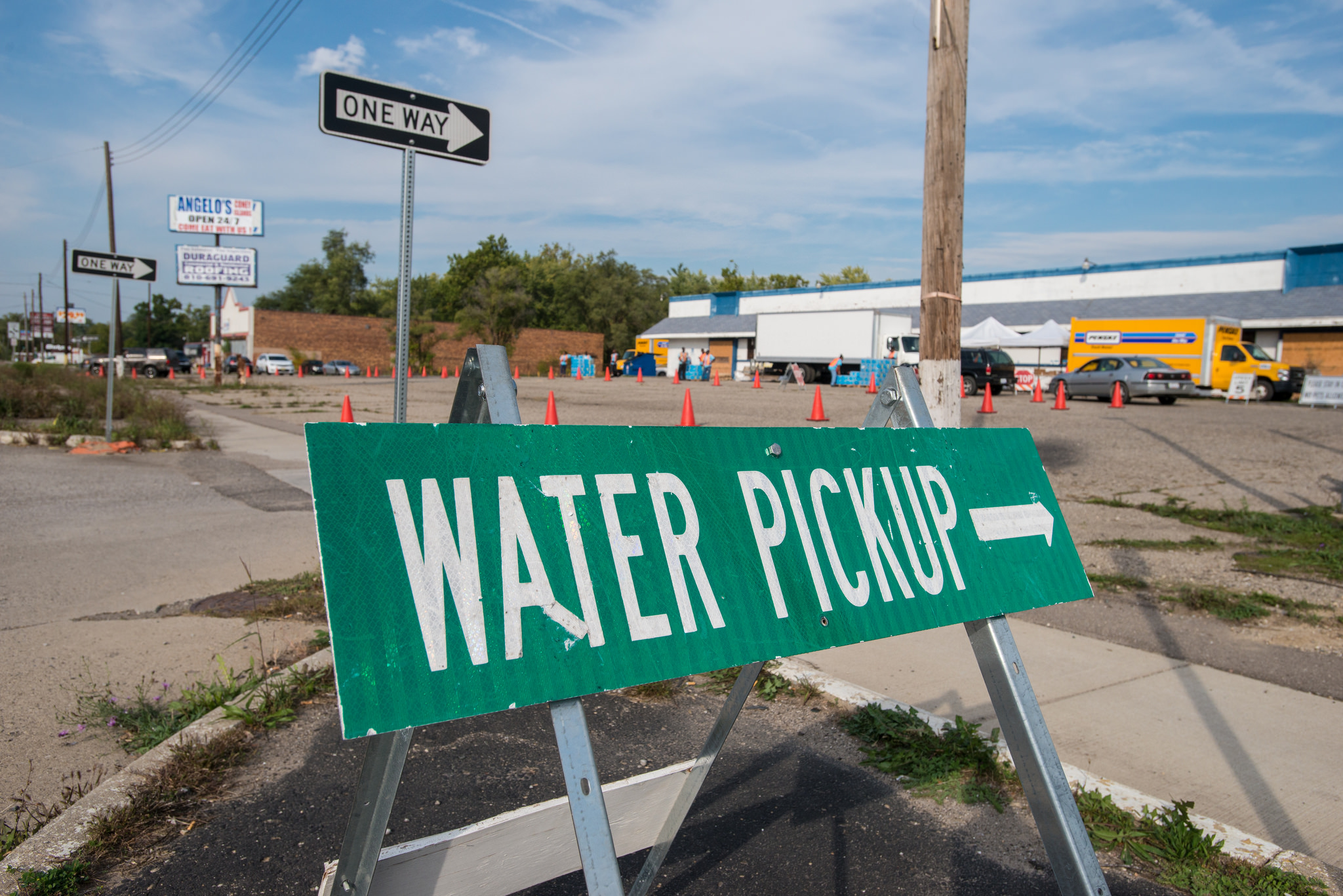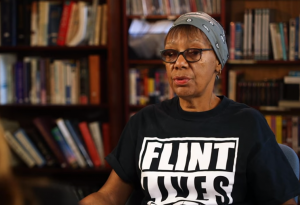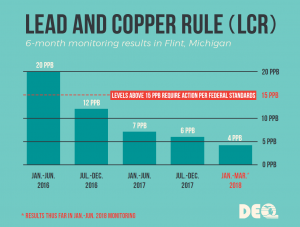
Flint’s Mayor calls decision “insensitive;” protests are planned
Michigan Governor Rick Snyder says the health of Flint’s drinking water has been restored. He says – because of this – the state has decided to end distribution of free bottled water as well as funding needed for the operation of water distribution sites in the city of Flint within the next few days.
When word got out on Friday that the free bottled water program was ending, crowds were reported at water distribution centers as people tried to obtain the last of the free bottles.
In a news release, Governor Snyder says, “I have said all along that ensuring the quality of the water in Flint and helping the people and the city move forward were a top priority for me and my team. We have worked diligently to restore the water quality and the scientific data now proves the water system is stable and the need for bottled water has ended.”
“Flint’s water is well within standards set by the federal government”
Governor Snyder says, “For the past two years I have repeatedly been asked when I would declare the water safe in Flint and I have always said that no arbitrary decision would be made — that we would let the science take us to that conclusion. Since Flint’s water is now well within the standards set by the federal government, we will now focus even more of our efforts on continuing with the health, education and economic development assistance needed to help move Flint forward. I remain steadfast in that commitment.”

City of Flint Mayor Karen Weaver, Photo by cityofflint.com
Flint Mayor Karen Weaver says she was informed of this decision just moments before the Governor went public with the news on Friday, April 6th. Weaver says, “I know this is not the situation any of us want to be in. We did not cause the man-made water disaster therefore adequate resources should continue being provided until the problem is fixed and all the lead and galvanized pipes have been replaced. I will be contacting the Governor’s office immediately to express the insensitivity of the decision”.
Weaver says she will also make sure the Governor is aware of the additional needs she has requested for the residents of Flint.
State officials say the Michigan Department of Environmental Quality recently did tests at locations throughout Flint which show the water is safe for residents to drink from the tap. MDEQ says in a news release that “testing is well below federal action level for nearly two years.”
“It’s just another layer of assault on the people of this community”
Flint residents like Claire McClinton sharply disagree with the state’s assessment of Flint’s water quality. McClinton tells Great Lakes Now, “It’s just another layer of assault on the people of this community. The state has no bottom as to how far they will go to deny the residents of Flint safe and affordable drinking water.” Some residents say their water still smells bad and it burns their skin when they take a shower.

Clean Energy March in Philadelphia, Photo by Mark Dixon
Great Lakes Now asked McClinton to respond to the State of Michigan’s statement that Flint’s water is safe to drink. She said, “My response is that it is a lie. There is no other way to put it. In the last two weeks, the lead levels in some of the schools have been at actionable levels.”
However, McClinton says the problem is that MDEQ is only testing for lead. She says the water in still unsafe in many parts of Flint due to toxins – and she says it is the toxins and bacteria that are what lead to the 12 legionnaire’s disease deaths in Flint after the water crisis began.
People who live in Flint remain wary of government reports and state research after their water supply was contaminated with lead for more than 18 months in 2014 and 2015 when officials switched to using Flint River water that wasn’t properly treated.
The water leached lead from pipes that provide Flint’s drinking supply. Tests showed local school children had high lead levels in their blood. McClinton says this move to cut off bottled water funding is just the state’s way of getting Flint out of the spotlight. She says, “The Governor, The MDEQ and the rest of them in Lansing have washed their hands of the city of Flint. They are done with Flint. As far as they are concerned, the water crisis is over and we are on our own. But WE’RE not done with THEM!”
McClinton says it’s back to square one. She says, “We’re going to have to go back to where we were when the crisis began. We will have to rely on charities.”
“The community is organizing for busses to head to Lansing”

Claire McClinton, Coordinator, Flint Democracy Defense League Water Task Force, Photo by Great Lakes Bureau
McClinton says the community is organizing for busses to head to Lansing on Wednesday to protest the Governor’s decision to stop providing free bottles water to Flint residents.
Governor Snyder’s announcement was made two days after the state announced it was releasing Flint from state oversight, and just four days after the MDEQ announced it would allow Nestle Waters North America to increase the amount of water it withdraws from the ground in Osceola County from 250 gallons a minute to 400 gallons a minute.
Nestle pays 200 dollars a year in state administrative fees to draw the water – the same amount some Flint residents have paid per month for water bills since the water crisis began in the spring of 2014 – and many have been paying that amount for water they can’t drink.
Environmental groups like the National Wildlife Federation (NWF) are also weighing in on the state’s decision.
In 2016, the National Wildlife Federation pushed for $100 million in federal funding to help fix Flint’s water infrastructure, which was passed by Congress. The EPA awarded this funding in March, 2017, to begin replacing lead water lines, combined with $250 million from the state.
However, NWF says this work is still on-going.
Director of National Urban Initiatives for NWF Simone Lightfoot says, “It is outrageous to discontinue water distribution to the people of Flint……. Michigan should continue water deliveries to Flint until all the lead lines are replaced. There are over 12,000 remaining homes in Flint with lead or galvanized pipes and a plan in place by the city to replace 6,000 of those homes’ pipes by 2019. It is perfectly reasonable and in the best interest of human and public health for the state to work with the city to provide water to the community while continuing to collect test samples for lead and copper quantities.”
“Bottled water may be ending but the state’s commitment to the residents of Flint remains strong,” says Rich Baird, senior advisor to Governor Snyder and team leader for the state’s Mission Flint Office. Baird says, “I want to acknowledge all of the people who contributed to Flint’s water recovery efforts. We are grateful to the researchers who discovered the problem and to the thousands of people who have provided water and support, and helped monitor the water quality. Nearly two years of scientific data shows that Flint’s water system is stable and confirms the suitability of water in Flint for drinking.” Baird says, “Bottled water may be ending but the state’s commitment to the residents of Flint remains strong.”





